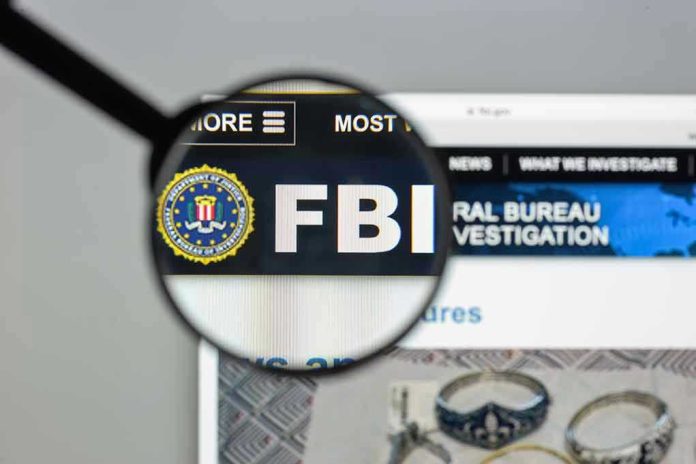
Ten Republican senators swept into an FBI surveillance operation—allegedly worse than Watergate—now face a storm of questions about government overreach, political motives, and the very soul of American democracy.
Story Snapshot
- Senate Judiciary Chairman Grassley alleges FBI spied on eight GOP senators during the Arctic Frost probe.
- Claims connect the probe’s findings to Special Counsel Jack Smith’s subsequent work.
- Conservative voices call the operation “arguably worse than Watergate” for its scope and intent.
- Congressional oversight and public trust in federal law enforcement are now under intense scrutiny.
FBI Surveillance Sparks Political Firestorm
Senate Judiciary Chairman Chuck Grassley’s accusation that the FBI surveilled ten Republican senators during the Arctic Frost investigation has sent shockwaves through Capitol Hill. Grassley’s claim centers on newly surfaced documents that outline FBI methods and targets, implicating his colleagues in a broader probe that eventually fed into Special Counsel Jack Smith’s work. While the public has grown accustomed to partisan friction, the notion of high-level lawmakers being monitored by federal law enforcement raises the stakes dramatically and revives echoes from the Watergate era.
Grassley’s assertion is not mere rhetoric—it’s a direct challenge to what many conservatives see as the unchecked power of federal agencies. The “Arctic Frost” probe, once considered a routine investigation, now faces backlash from those who believe it crossed constitutional boundaries. The senators involved have remained relatively silent, fueling speculation and amplifying demands for transparency. As the story unfolds, public confidence in the FBI’s impartiality stands at a crossroads, with many Americans questioning whether political bias played a role in surveillance decisions.
Comparisons to Watergate: Are We Witnessing a Modern Political Scandal?
Conservative commentators have not hesitated to label this episode “arguably worse than Watergate.” Unlike the infamous break-in and cover-up that toppled a presidency, the current situation involves sophisticated surveillance techniques, digital data collection, and inter-agency cooperation. The scope and secrecy of the FBI’s operations targeting sitting senators have prompted comparisons to previous abuses of power, but with a critical twist—the alleged targets were not shadowy operatives but elected officials with significant influence over national policy.
Proof the FBI was spying on GOP Senators communication came to light yesterday (I was one of the senators who was spied on).
Yet WashPo led with water carrying for Democrats’ shutdown in their newsletter this AM.
It’s a long fall from ‘All the Presidents’ Men’ pic.twitter.com/pJTOSPV7rS
— Cynthia Lummis 🦬 (@CynthiaMLummis) October 7, 2025
Watergate’s legacy is defined by its audacity and by the subsequent reforms that sought to constrain executive power. The Arctic Frost probe threatens to upend those reforms, suggesting that the levers of government can still be pulled for political advantage. As details emerge, the American public is left to grapple with fundamental questions about privacy, accountability, and the limits of law enforcement in a constitutional republic.
Oversight, Accountability, and the Battle for Public Trust
Senate hearings and press briefings have already begun dissecting the Arctic Frost probe. Grassley’s demand for answers places the FBI under unprecedented scrutiny, with lawmakers from both parties now forced to confront uncomfortable truths about the balance between security and liberty. Congressional oversight mechanisms, designed to prevent abuse, will be tested as investigators seek to determine whether surveillance was justified or driven by partisan motives.
The implications extend far beyond the senators directly affected. If the allegations prove true, future investigations into political figures may face stricter controls and heightened transparency requirements. Americans over 40, many of whom recall the Watergate scandal’s impact, are watching closely—some with skepticism, others with outrage. The story’s outcome will likely shape public perceptions of federal law enforcement for years to come, reaffirming or undermining the principle that no one is above the law, not even those who enforce it.
Political analysts argue that the real test lies in how Congress and the public respond. Will this episode inspire meaningful reform, or fade into the background of partisan conflict? Open questions remain about the Arctic Frost probe’s origins, the criteria for selecting surveillance targets, and the role of Special Counsel Jack Smith in using the investigation’s findings. For now, the story continues to unfold, leaving readers with more questions than answers—and a potent reminder of democracy’s fragility.
Sources:
The FBI analyzed Republican lawmakers’ phone records during Jan. 6 probe, GOP senators say







